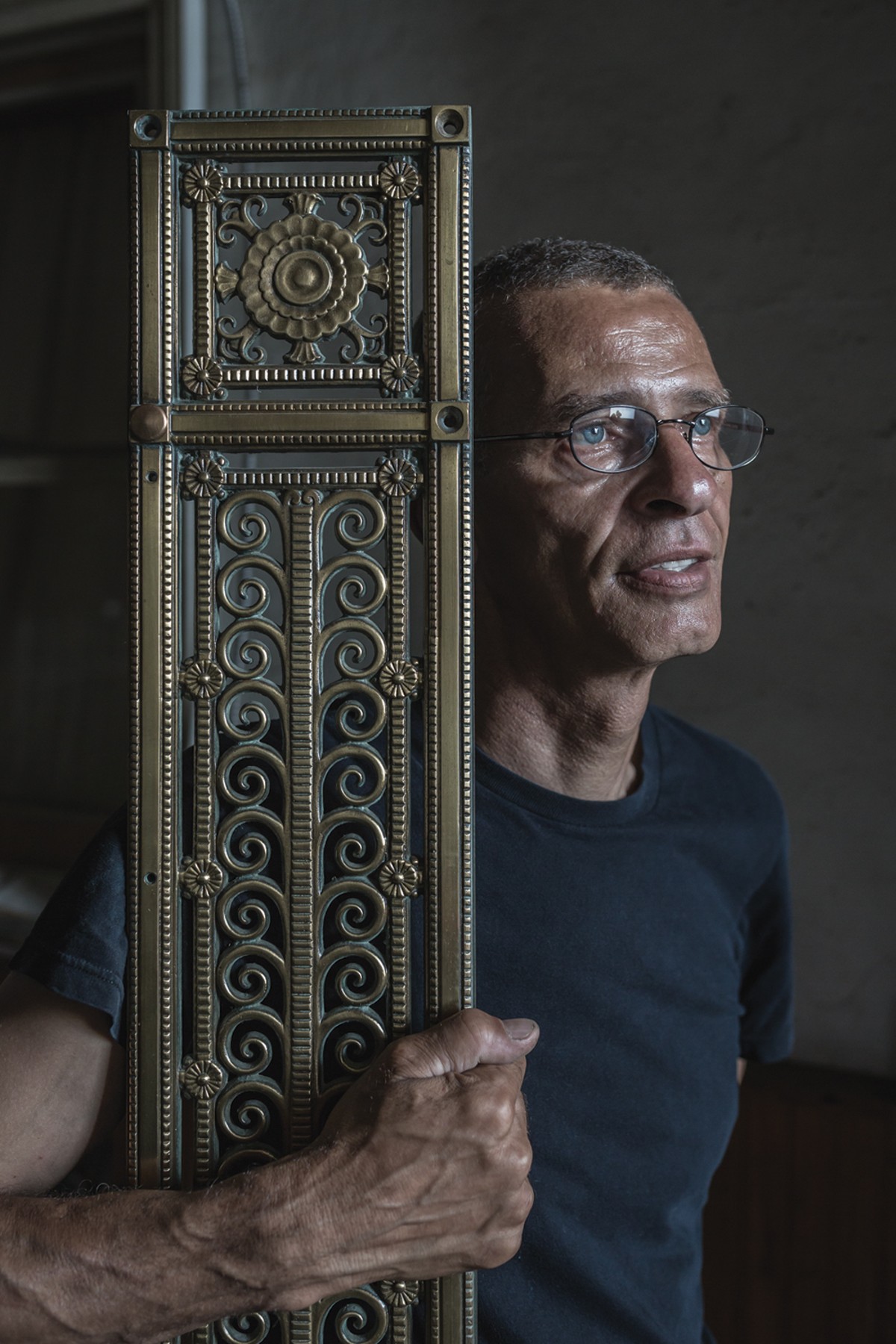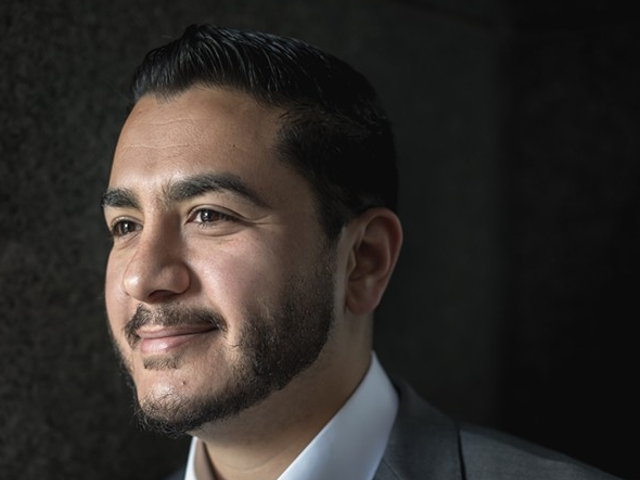Carl Nielbock knows a thing or two about rebuilding cities.
Born in Celle, Germany in 1959, Nielbock grew up amid buildings and monuments destroyed by Allied shells. Their rebuilding was a typical part of his childhood. The rebuilding was cultural too, as Germany was de-Nazified and integrated into the West. He describes it as a special time, when a "forward-looking" populace had to decide "which values to reject and which to sustain."
Little did he know as a child that another city 4,000 miles away that would face many of the same challenges. And he could hardly have guessed it was in his blood.
You see, Nielbock was one of the "children of the occupation," with a German mother and an African-American GI father. In 1984, 25-year-old Nielbock came to Detroit, hunting down a return address he'd found among his mother's possessions. He found his father, his uncle, and a whole family he never knew he'd had. And he discovered the rich, historical architecture of the city he's now adopted.
In America, Nielbock has prospered, working on architectural refurbishing and fabrication, helping such showpieces as Grosse Pointe South High School and the Fisher Building shine like new. He has been able to repair the studio and living space he now occupies, near the intersection of Gratiot and Chene, headquarters of his company CAN Art Handworks, Inc.
Nielbock is disposed to see things much differently than your typical Detroiter. Where many see eyesores, he sees assets. Where others see trouble-prone teens, he sees potential apprentices whose skills are needed. And even in Detroit's vacant land, he sees potential for wind farms, green energy, and much more. He's even designed windmills that aren't capital-intensive, that have weathered years of storms and continue to produce energy on his back lot.
Producing energy on small vacant lots? Working with existing utility authorities under a reverse meter program, Nielbock says large amounts of green energy — and income — could be generated.
"It could be produced by co-ops," he says, "just like urban farms produce food. The idea is to create taxable income for every lot here, so we can fund civic services from schools to ambulances."
With Detroit being named a City of Design by UNESCO, Nielbock has been joined by others envisioning the future. He has collaborated with academics and students in Europe, most recently at Austria's University of Graz. The school's teachings, which include learning by doing and using what's available, dovetailed neatly with Nielbock's ethos. Students, in turn, were excited by the way he "upcycles" consumer technology into green infrastructure. They and others like them will crowd into Detroit Sept. 22-24, looking to learn from Nielbock and our city's other design visionaries.
To Nielbock, such cultural exchanges offer much for Detroiters to learn. "In Germany," he notes, "one-third of the entire economy is skilled trades and the goods that the skilled trades bring forth. In Detroit, that was fueled by the automotive sector, but that doesn't exist anymore."
To fill the void, Nielbock would like to see an effort to cultivate the skills to refurbish the old and integrate it with the new.
"We've got to reinstate the skilled trades that originally built the Paris of the Midwest," he says. "Everywhere I look, I see how the skilled trades originally built all this historic stuff, and how it will be integrated into the new economy, which is based on tourism and recreation."
Meanwhile, a new "urban revival architecture" will fuse historic style, green energy, and new technology. Nielbock says, "That's just what we need in Detroit."
"We must seek out and look at sustainable societies," he says. "They're already doing this in Germany, Austria. Scotland. Of course, their societies are so different, with free school and living wages, we can't even wrap our heads around that here."
Given all the money that's being poured into redevelopment, Nielbock asks what trades might look like if just 10 percent were set aside for skilled trades training, an investment in maintaining Detroit's civic treasures. Similarly, Detroit could help cultivate the next generation of sustainable energy experts. To Nielbock, they need not be isolated disciplines, but can blossom together. It's all about using things we're not used to seeing as valuable.
"Let's see if we can think of ways to use things we've already created," he says. "There is greatness on every corner."
Back to the People Issue.






